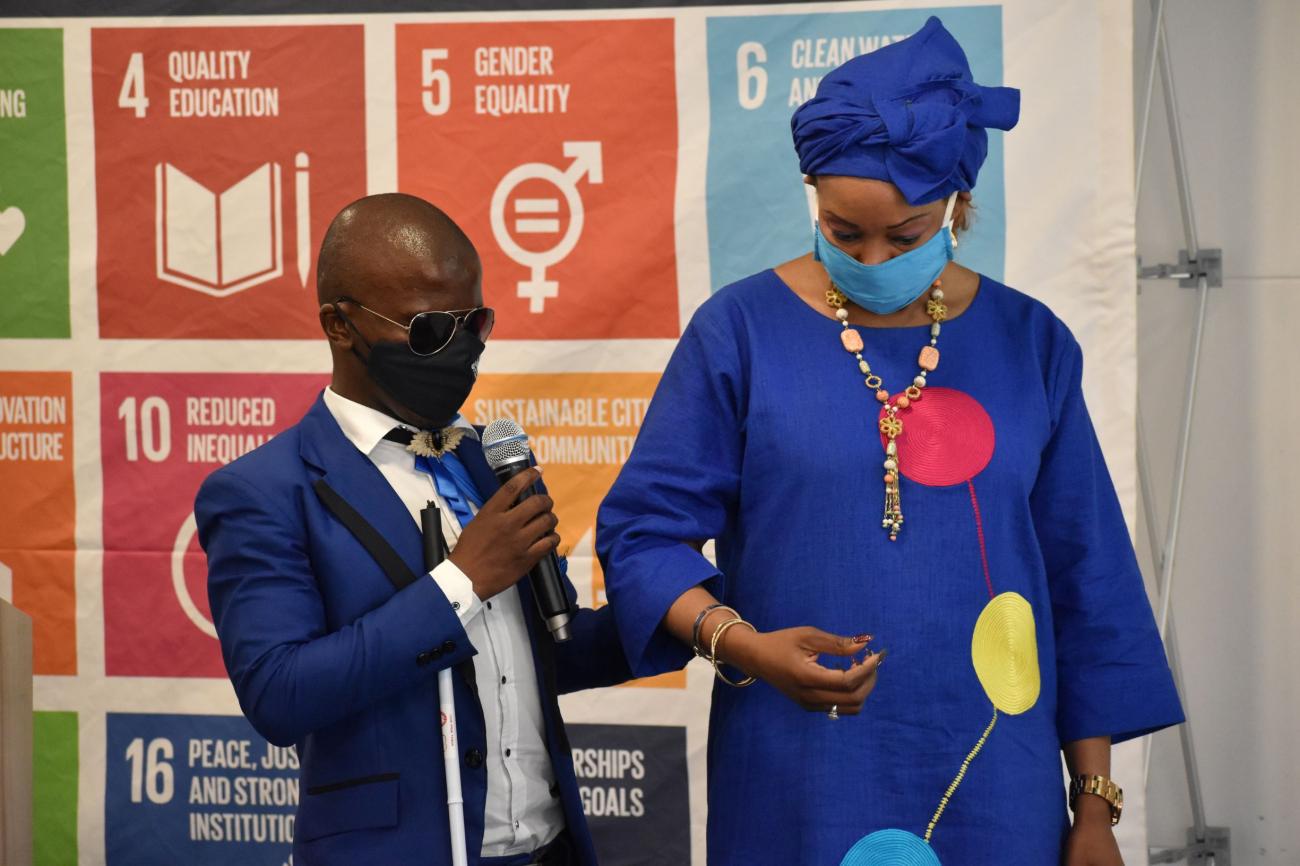On Thursday, 15th October, in collaboration with the Swaziland Association of Visually Impaired Persons, the United Nations in Eswatini hosted an inspiring press event in celebration of the International White Cane Awareness Day.
The event was hosted at the UN House, including a demonstration of how best to assist a person with visual impairment and how to use a braille machine.
Partners from CANGO, Save the Children, FODSWA and the Disability Unit under the Deputy Prime Minister’s Office, shared addresses.
International White Cane Awareness Day seeks not only to celebrate the incredible every day achievements of blind and visually impaired persons but to educate the world about blindness.
“Today, we celebrate the courage and the resilience of persons living with blindness and visual impairment, who live and work independently, transform lives in their communities and achieve success in a sighted world. We respect and admire deeply your contributions to this nation and to the world,” stated the UN Resident Coordinator, Ms Nathalie Ndongo-Seh.
The White Cane, a significant symbol of the occasion, has historically become a symbol of freedom, independence and confidence for those living with blindness.
“It is a magnificent achievement that men, women, girls and boys living with blindness are able to live independent lives using a cane. We honour all those today who rely on the white cane for their independent travel: you bring pride and hope to so many people living with and without sight,” continued the Resident Coordinator.
A gentleman living with blindness shared how best to assist a blind person to cross a street; noting that allowing the blind man or woman to place their hand on an assisting persons’ shoulder will enable them to cross the road safely. Prior to the COVID-19 pandemic, leaning on a person’s elbow for guidance was a better option for blind men and women.
Across the world, approximately 2.2 billion persons live with visual impairment. Under normal circumstances, persons living with disabilities are less likely to access education, healthcare and livelihoods, or be included in communities and leadership responsibilities. However, the COVID-19 pandemic has exacerbated these inequalities.
The United Nations is dedicated to ensuring that no is left behind: both in the recovery from COVID-19 and the achievement of Agenda 2030 of Sustainable Development Goals (SDGs).
In the Kingdom of Eswatini, an estimated 12,000 people live with visual impairment, according to the World Health Organisation (WHO). 6,000 of such cases are resultant from cataract; a preventable or a repairable condition.
“The United Nations in Eswatini continues to stand in solidarity with all persons who live with blindness and visual impairment. Through the Deputy Prime Minister’s Office’s Disability Unit, the UN is working to enable persons living with disabilities to thrive and live independent lives. However, more attention and resources are needed to empower persons living with visual impairment and blindness,” stated the UN Resident Coordinator,
“Commitment, creativity and inclusion are required to address many of their challenges, as well as an undeniable recognition of their significant contribution to the Kingdom of Eswatini and the world. When we secure the rights of persons with disabilities, we invest in our common future,” continued Ms Ndongo-Seh.
The event was broadcast on live television.




